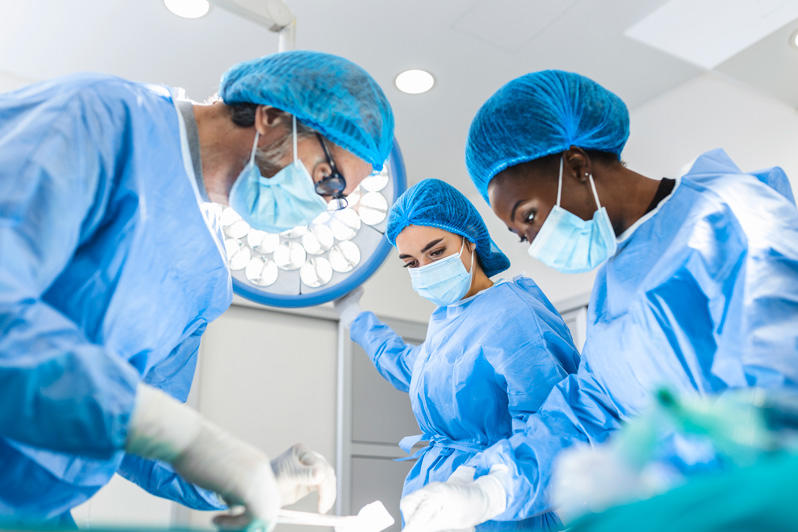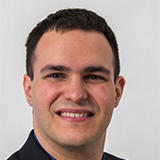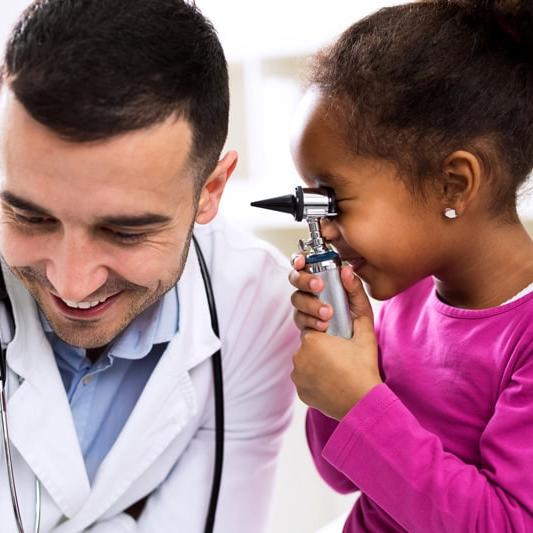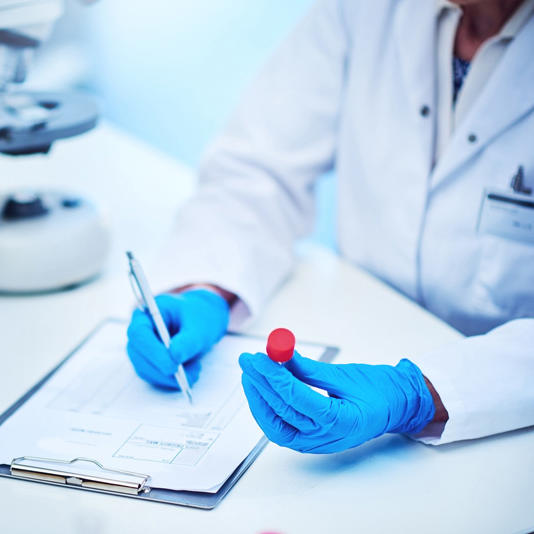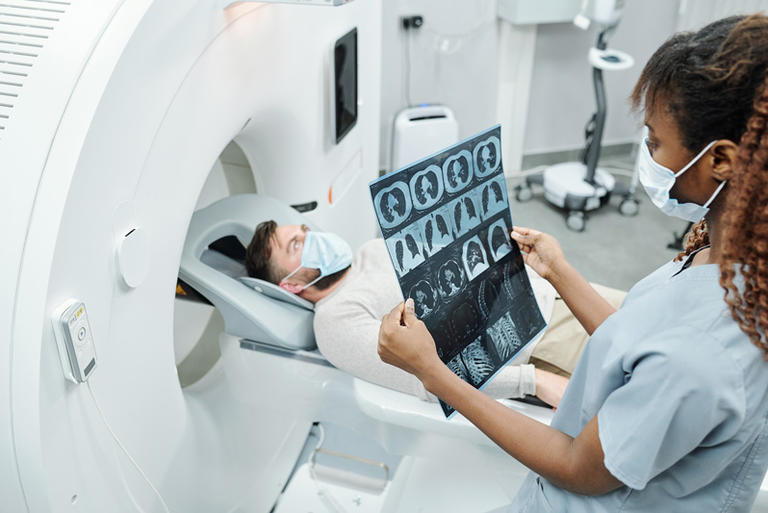If you want to become a physician, and you’re curious about medical specialties down the road, consider this one: general surgery. Every physician has some training in surgery and is qualified to perform simple operations. But surgeons—who operate to treat disease, deformities, or injuries—are specially trained to perform complicated procedures. Surgeons must be physically skilled to manipulate surgical tools, and they must have a wide knowledge of the medical sciences. General surgery is one of 14 surgical specialties recognized by the American College of Surgeons.
What Does A General Surgeon Do?
General surgery includes a broad spectrum of surgical conditions affecting almost any area of the body. A general surgeon makes the diagnosis and provides the preoperative, operative, and post-operative care to patients. General surgeons are often responsible for the comprehensive care of trauma victims and critically ill patients. Surgeons must be capable in nearly all forms of surgery, and they should be able to handle a variety of emergencies and unexpected events in the operating room. A general surgeon’s core knowledge includes:
- Anatomy
- Immunology
- Intensive care
- Metabolism
- Neoplasia
- Nutrition
- Pathology
- Physiology
- Shock and resuscitation
- Wound healing
General surgeons put that knowledge toward expertise in the nine primary components of surgery:
- Abdomen
- Alimentary tract
- Breast, skin, and soft tissue
- Critical care
- Endocrine system
- Head and neck
- Surgical oncology
- Trauma management
- Vascular system (excluding the intracranial vessels and heart)
How to Become A General Surgeon
To become a general surgeon, you must first become a physician by graduating from an accredited medical school*—such as Ross University School of Medicine (RUSM). The steps to a medical degree at RUSM, which is located on the Caribbean island of Barbados, are the same as at United States-based schools: two years of medical science classes and two years of hands-on clinical training. For RUSM students, the medical sciences curriculum is completed at the Barbados campus; the clinical training can be completed at affiliated teaching hospitals in the United States.
During clinical training, all RUSM students complete core rotations in internal medicine, surgery, pediatrics, family medicine, obstetrics/ gynecology, and psychiatry. Each individual student, then, selects from among 40 specialty elective clerkships to fulfill their remaining clinical requirements.
During the fourth and final year of medical school, students prepare for the next step in their medical education: residency. At RUSM, the Office of Career Advisement (OCA) helps students determine which residency specialty—such as general surgery—suits them best. The OCA then helps students negotiate the National Resident Matching Program® (NRMP®)—a placement system which medical students who want to obtain licensure in the U.S. use to “match” with a medical residency. Residencies are required to become a licensed physician, and they last from three to eight years. A general surgery residency is five years.
In 2021, RUSM had a first-time residency attainment rate of 92 percent for 2020-2021 graduates, a match percentage rate comparable with the overall match rate (93 percent) for medical schools in the United States. In recent years, RUSM MD’s have matched with general surgery residencies at such hospitals as Carle Foundation Hospital in Illinois; San Joaquin General Hospital in California; St. Luke’s Hospital Bethlehem in Pennsylvania; and SUNY Upstate Medical University in New York.
After the successful completion of general surgery training, doctors may be certified by the American Board of Surgery, and they may apply for membership in the American College of Surgeons. Doctors who want to specialize in a specific area of surgery must take additional fellowship training.
MEET A SURGEON
Joel Calafell, MD, a 2014 RUSM graduate, is a Colon and Rectal Surgery Fellow at Lehigh Valley Health Network in Pennsylvania. We asked Dr. Calafell to describe the role of a surgeon.
Q: Why did you decide to become a surgeon?
A: I love the anatomy of the human body. Surgery gives me the opportunity at truly curing a patient of an ailment, and not just treating it.
Q: Any advice to medical students considering the specialty?
A: Study hard and get as much exposure as possible. Learn anatomy better than God.
Q: What’s the most rewarding part of your job?
A: The thanks from a patient after a successful surgery.
If you want to become a doctor, and a career as an general surgeon appeals to you, learn more about the RUSM MD Program and investigate the Office of Career Advisement. When you’re ready, take the next step on your path to a specialization in general surgery: apply for admission to Ross University School of Medicine.
Related Resources:
*Ross University School of Medicine is accredited by the Caribbean Accreditation Authority for Education in Medicine and other Health Professions (CAAM-HP, www.caam-hp.org).
CAAM-HP is the legally constituted body established in 2003 under the aegis of the Caribbean Community (CARICOM), empowered to determine and prescribe standards and to accredit programs of medical, dental, veterinary and other health professions education on behalf of the contracting parties in CARICOM.
Accreditation by CAAM-HP is a rigorous, peer review process which examines all aspects of a medical program. The CAAM-HP board, an independent and autonomous body of professionals, only certifies medical schools which are operating at the highest levels of industry standards.
Through this accreditation, the CAAM-HP provides assurance to medical students, graduates, the medical profession, healthcare institutions and the public that programs leading to qualifications in medicine meet appropriate national and international standards for educational quality, and that the graduates have a sufficiently complete and valid educational experience.

